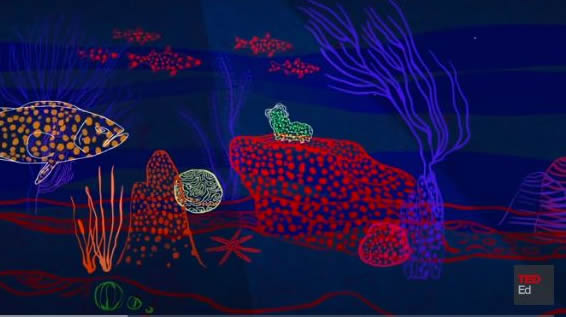Most schools across the country are still operating remotely, and as the days tick by, it’s easy for students and teachers to feel as if they’ll never return to the physical classroom. Teachers and parents looking for engaging learning resources might find TED-Ed Lessons helpful while schools are still virtual.
The TED-Ed platform is especially cool because educators can build lessons around any TED-Ed Original, TED Talk, or YouTube video.
Related content: 8 STEM learning challenges students can do from home
Once you find the video you want to use, you can use the TED-Ed Lessons editor to add questions, discussion prompts, and additional resources.
Here are a handful of TED-Ed Lessons covering plant life, crazy sea creatures, bodily functions, and more.
1. Why is my leg asleep? Have you ever had an arm or leg fall asleep and then experience that poking feeling when you moved? This lesson will explore why we experience these feelings. Watch the video by SciShowKids and then complete the lesson.
2. Which is better: Soap or hand sanitizer? Your hands, up close, are anything but smooth. With peaks and valleys, folds and rifts, there are plenty of hiding places for a virus to stick. If you then touch your face, the virus can infect you. But there are two extraordinarily simple ways you can keep that from happening: soap and water, and hand sanitizer. So which is better? Alex Rosenthal and Pall Thordarson investigate.
3. Can plants think? Have you ever thought about how complex plants are? Can they actually think like we do? Watch this asapScience video and learn how plants think.
4. This sea creature breathes through its butt: Is it a fuzzy sock? An overripe banana? A moldy tube of toothpaste? No! In fact, it’s a humble sea cucumber: a brainless, fleshy form surrounding a digestive tract, and bookended by a mouth and an anus. And while it might look odd, its daily toil paves the way for entire ecosystems to thrive. Cella Wright journeys to the bottom of the ocean to explore the lives of these sausage-shaped wonders.
5. The bug that poops candy: Aphids can reproduce incredibly fast: they can make 20 new generations within a single season. And that means lots of poop. Some aphid populations can produce hundreds of kilograms of poop per acre— making them some of the most prolific poopers on the planet. We know this poop as the sweet, syrupy liquid called honeydew. George Zaidan explores the wonderfully weird life of an aphid.
6. Make your own secret ink! Chemical reactions occur all around us, but they only occur under particular circumstances. What causes a chemical reaction? What must be present for a chemical reaction to occur? Let’s find out together!
7. How the world’s longest underwater tunnel was built: Flanked by two powerful nations, the English Channel has long been one of the world’s most important maritime passages. Yet for most of its history, crossing was a dangerous prospect. Engineers proposed numerous plans for spanning the gap, including a design for an underwater passage more than twice the length of any existing tunnel. Alex Gendler details the creation of the Channel Tunnel.
- 4 ways to support work-based learning - April 23, 2024
- Prioritizing inclusivity in game-based learning - April 22, 2024
- Friday 5: Universal Design for Learning - April 19, 2024

